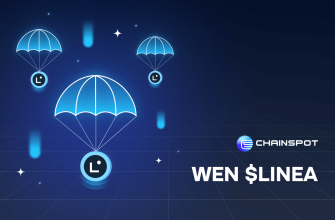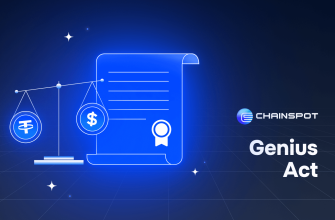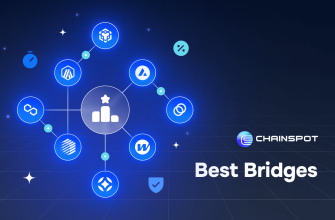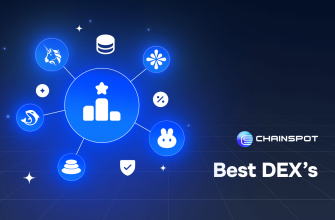Decentralized exchanges, or DEXs, are a pivotal development in the realm of cryptocurrency trading.
Unlike traditional centralized exchanges (CEXs) which require users to deposit their funds into an exchange’s custodial wallet, DEXs operate without intermediaries, allowing peer-to-peer trading directly from users’ wallets. This model aligns with the core philosophy of blockchain technology: decentralization and self-sovereignty.
How DEXs Work
At their core, DEXs leverage smart contracts—self-executing contracts with the terms directly written into code—to facilitate trades. Users interact with these smart contracts to execute buy and sell orders, eliminating the need for a centralized authority to manage and process transactions. This not only enhances security but also reduces the risk of hacks and thefts commonly associated with centralized exchanges.
Examples of Leading DEXs
Several DEX platforms have gained prominence in the cryptocurrency space, each offering unique features and capabilities:
- Uniswap: One of the most popular DEXs, Uniswap operates on the Ethereum blockchain and utilizes an automated market maker (AMM) model. Instead of traditional order books, Uniswap uses liquidity pools where users can provide liquidity and earn fees.
- SushiSwap: A fork of Uniswap, SushiSwap has built upon the AMM model with additional features like staking and yield farming. It incentivizes users to provide liquidity by offering rewards in the form of its native token, SUSHI.
- PancakeSwap: Operating on the Binance Smart Chain (BSC), PancakeSwap offers similar functionalities to Uniswap but with lower transaction fees. It has quickly become one of the most popular DEXs on BSC, attracting users with its diverse array of trading pairs and farming opportunities.
- Balancer: Another Ethereum-based DEX, Balancer allows users to create custom liquidity pools with multiple tokens and varying weightings. This flexibility enables more sophisticated trading strategies and better capital efficiency.
Advantages of Using DEXs
- Security: Since users retain control over their private keys, the risk of funds being stolen due to a hack on a central entity is minimized. This makes DEXs inherently more secure than their centralized counterparts.
- Privacy: DEXs typically require no KYC (Know Your Customer) procedures, allowing users to trade without providing personal information. This appeals to users who prioritize privacy and anonymity.
- Censorship Resistance: Without a central authority, DEXs are less susceptible to government regulations and censorship. This makes them an attractive option in regions with restrictive financial regulations.
- Access to a Broader Range of Assets: DEXs often list a wider variety of tokens, including those that might not be available on centralized exchanges. This gives users access to a broader range of investment opportunities.
Challenges and Limitations
Despite their advantages, decentralized exchanges (DEXs) face several significant challenges that hinder widespread adoption. One of the primary issues is liquidity. Centralized exchanges typically have higher liquidity, which results in tighter spreads and less slippage for large trades. In contrast, DEXs, especially smaller ones, often struggle with liquidity problems, affecting trading efficiency and user experience.
Another challenge is the complexity of user interfaces. Many DEXs present a steep learning curve, particularly for beginners who might find the platforms intimidating and difficult to navigate. This complexity can deter new users from adopting decentralized trading, despite the potential benefits.
Transaction fees pose another hurdle. On blockchains like Ethereum, fees can become prohibitively high during periods of network congestion. This makes trading on DEXs expensive compared to centralized exchanges, particularly for smaller trades, and can discourage users from participating in the decentralized market.
Additionally, while smart contracts are a cornerstone of DEX functionality, they are not without risks. Bugs or vulnerabilities in the contract code can lead to exploits, resulting in significant financial losses for users. These risks underscore the importance of rigorous security audits and continuous improvement of smart contract protocols to safeguard users’ assets.
Real-world Applications and Future Prospects
Decentralized exchanges have already proven their utility in several real-world applications. A key area of impact is decentralized finance (DeFi). DEXs are fundamental to the DeFi ecosystem, enabling users to trade tokens, provide liquidity, and earn interest without the need for traditional financial intermediaries. This has democratized access to financial services, allowing anyone with an internet connection to participate.
Token launches represent another significant application of DEXs. Initial DEX Offerings (IDOs) have become a popular method for new projects to raise funds and distribute tokens. This approach often allows for a fairer distribution compared to centralized exchange offerings, as it leverages the decentralized nature of the platform to reach a broader audience without favoritism or insider advantages.
The potential for cross-chain trading is also an exciting prospect for DEXs. Some platforms are exploring interoperability solutions to enable trading across different blockchains. This development could significantly expand the scope and utility of decentralized trading platforms, making it possible to trade assets from various blockchain networks seamlessly.
Looking forward, the future of DEXs appears promising. Ongoing advancements in blockchain technology, such as layer-2 scaling solutions and cross-chain protocols, are expected to address many of the current limitations. These technological improvements will likely enhance the efficiency, user-friendliness, and liquidity of DEXs, positioning them as serious competitors to centralized exchanges. As these platforms evolve, they are set to play an increasingly important role in the global financial ecosystem, offering a secure, private, and decentralized alternative for trading digital assets.
Conclusion
Decentralized exchanges represent a significant innovation in the world of cryptocurrency trading. By eliminating intermediaries and providing a more secure, private, and censorship-resistant trading environment, DEXs align with the fundamental principles of blockchain technology. While challenges remain, ongoing technological developments and growing user adoption suggest a bright future for decentralized trading platforms. As the cryptocurrency landscape continues to evolve, DEXs are poised to play an increasingly important role in the global financial ecosystem.












